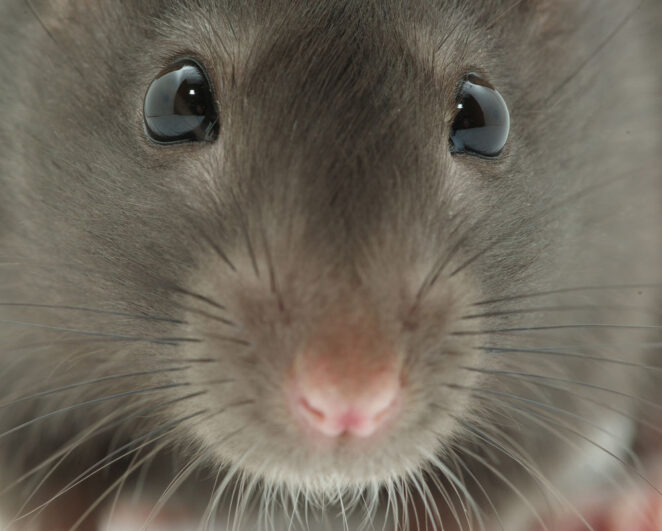Online we can find a lot of misinformation about rodent control. When we search for DIY or natural alternatives, many sites out there claim their “remedies” work. But we know that not all online “experts” are reliable. Countless DIY critter control remedies suggested by sites are not based on tangible proof.
If you are skimming the internet for critter management and have come across the notion; mothballs prevent rats and mice from entering your home, you might skeptically consider using mothballs for this purpose. So, let’s find out, “Do mothballs repel rats and mice?”
1. Do Mothballs Repel Rats And Mice?
It is an old wives tale that started with the presumption that mothballs are used as pest control, so they will also work on these critters.
Rodents bear health risks with consistent exposure. Bacteria from the urine and feces of these rodents cause many different diseases. Allowing a single one of them in your house can cause an infestation. But no matter your rodent situation, recovering a clean and rodent-free house is possible via critter control along with proper home maintenance.
So no, mothballs do not keep out rats and mice. Therefore, they are impractical as critter management tools. If you want a fix to your critter problem, read ahead. In this context, it is best to find a trusted rodent control company to get effective solutions done.
2. Why Are Mothballs Not Useful Against Rats and Mice?

While some may advocate the usage of mothballs for critter management, as per the EPA (Environment Protection Agency) regulations, it is illegal to utilize mothballs for this purpose. Using pesticides in a manner not specified on the labels is unlawful. Multiple illicit versions of ordinary pesticides are sold on the market, EPA takes action against these vendors and the product manufacturers.
What Are Mothballs?
Mothballs, as the name implies, were initially developed as pest management for fabric-eating moths that would ruin garments which were stowed for a long time.
Mothballs were purposed such that a poisonous gas would be emitted that would exterminate moths and moth larvae, stemming damage to your fabrics.
Mothballs Are Poisonous!
Mothballs comprised of naphthalene or paradichlorobenzene; polycyclic aromatic hydrocarbons which is harmful to humans and animals (pets). These chemicals are crystalline at room temperature in a container but emit poisonous fumes with prolonged exposure to air. Inhaling these fumes causes DNA damage to cells due to oxidative stress.
Mothballs comprising of paradichlorobenzene are safer than those containing naphthalene. However, mothball fumes cause severe concerns for your health. Some typical signs of mothballs intoxication include vomiting, headaches, coughing, diarrhea, eye irritation, hemolytic anemia, kidney problems, liver damage, and respiratory problems.
If you utilize these at home, keep them out of reach from kids and pets.
Mothballs Are Effective Only In Contained Areas
Mothballs are helpful only when contained in an area. Leaving mothballs in an unrestricted area is a horrid idea as the poisonous vapors can spread in the air and be inhaled by minors and pets. It also yields efficacy out in the open as the gases emitted are dispersed in the air. In addition, the amount of naphthalene in mothballs is insufficient to stop rats and other critters.
Thus mothballs are futile against rats and mice. Nonetheless, there are further things that people have acclimated against rats and mice beyond mothballs. Here are a few that you should contemplate using!
3. Homemade Remedies

Here are some effective home remedies for rodent control.
Fragrances
There are an assortment of odors that rats hate, which can assist in keeping rats far from your residence.
- Natural aromas: peppermint, chilli, eucalyptus and citronella, cinnamon, citrus, and vinegar.
- Chemical smells of ammonia, dry and fresh sheets, and bleach.
- Predator Odor: rats and mice detest the scent of their predators; even if they aren’t seen around the area, it will keep the critters out.
While these fragrances are the most compelling scents to keep rodents out, these are not the most functional cure, as you will need to reapply these smells to the spots again periodically.
Ultrasonic Pest Controllers To Ward Off Rats And Mice
These instruments operate in an identical manner to a dog whistle. The frequency of these waves is not discernible by human ears.
The supposition is rats, and mice get intimidated by bizarre sounds. Alas, ultrasonic waves cannot pass via walls and different objects, so you will be required to have to use multiple devices in various locations of your residence.
Preventing Rodents From Entering Your House
Rats and mice can penetrate via the puniest gaps and enter your house. You can close these gaps using a mesh net and a sealant gun. You can also reach out to professional rodent removers to fill the hard-to-find gaps in your house.
Keeping Your House Clean
If you have a playground and trees around your house, tend the verdure daily, as these aid rats and mice to hide in plain view. Inside your residence, it’s best to stow food items in a covered container. Pet food should also be stored in sealed containers, and clean your pets’ eating areas after they are done with their meal. Don’t leave edibles out in the open.
Try to maintain your house as clutter-free as possible. It will help with critters and keep bacteria and germs away.
4. Should You Reach A Professional For Help?

Most of these homemade remedies work if you do not have a widespread infestation of mice and rats in your house, then these remedies may perform well for you to keep out the pests. However, suppose you are facing a substantial infestation of rats and mice in your home, large enough that you cannot sleep without hearing these critters’ noises; in that case, it is time for you to consider calling in a professional to deal with your problem.
Conclusion
Homemade remedies work for a while but are short-term solutions. So it is a good idea to stop an infestation from beginning in the first place. So if you want to avoid dealing with a bigger problem in the future, call in an expert now when you are considering these homemade remedies.




